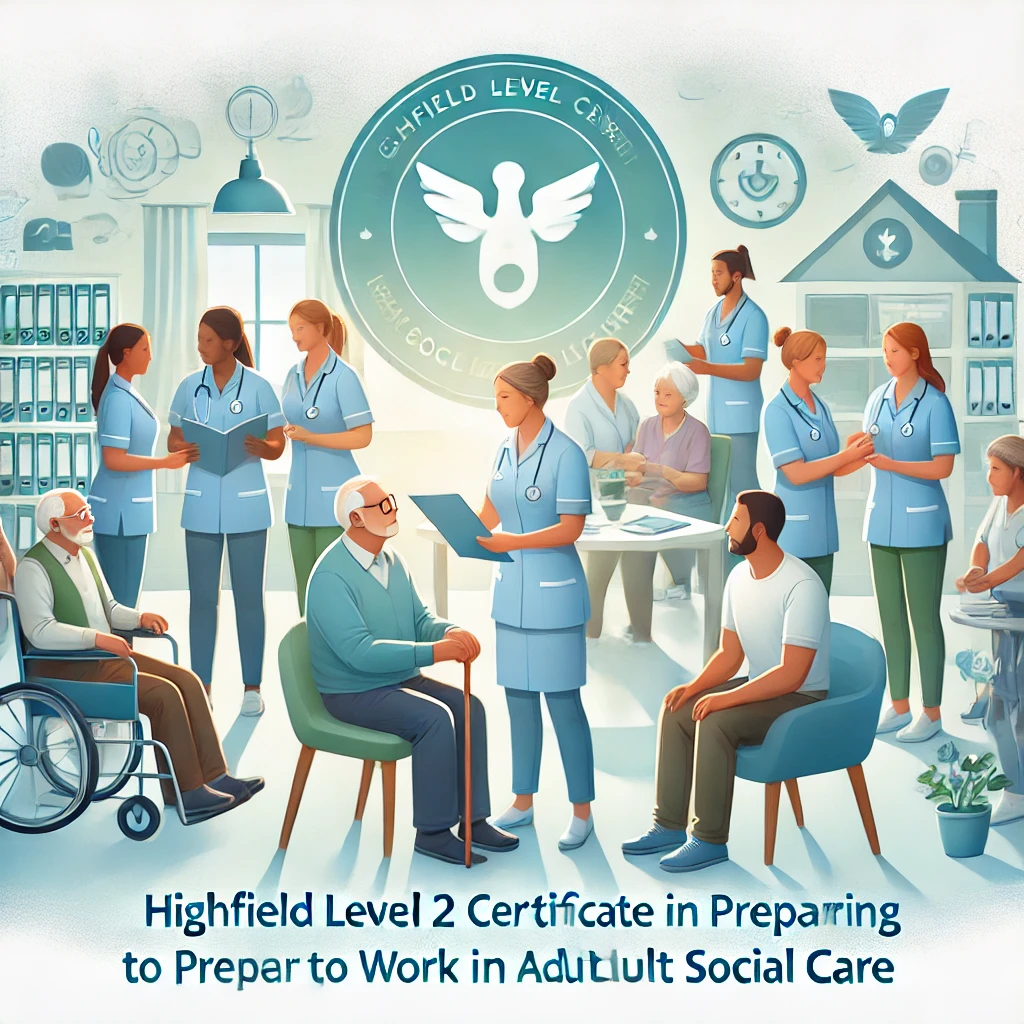Highfield Level 2 Certificate in Preparing to Work in Adult Social Care (RQF)
Categories: Health and Social Care

About Course
The objective of this qualification is to prepare learners to progress to a qualification in the same subject area but at a higher level or requiring more specific knowledge, skills and understanding. It is aimed at those working or preparing to work in adult social care and aims to introduce knowledge only around areas relating to adult social care, including:
• communication;
• equality, diversity and inclusion;
• personal development;
• role of the social care worker;
• handling information;
• health and safety;
• safeguarding;
• duty of care; and
• person centred approaches.
What Will You Learn?
- Principles of communication in adult social care settings
- Principles of personal development in adult social care settings
- Principles of diversity, equality and inclusion in adult social care settings
- Principles of safeguarding and protection in health and social care
- Introduction to duty of care in health, social care or children’s and young people’s settings
- Understand the role of the social care worker
- Understand person-centred approaches in adult social care settings
- Understand health and safety in social care settings
- Understand how to handle information in social care settings
Course Content
Unit 1: Principles of communication in adult social care settings
The unit introduces the importance of communication in adult social care settings, and ways to overcome barriers to meet individual needs and preferences in communication.
This unit is aimed at those who are interested in, or new to, working in social care settings with adults.
Highfield Level 2 Certificate in Preparing to Work in Adult Social Care (RQF) 14 Unit 2: Principles of personal development in adult social care settings
The unit introduces the concept of personal development which is fundamental to adult social care.
This unit is aimed at those who are interested in, or new to, working in social care settings with adults.
Unit 3: Principles of diversity, equality and inclusion in adult social care settings
This unit introduces the concept of inclusion, which is fundamental to working in adult social care settings. This unit is aimed at those who are interested in, or new to, working in social care settings with adults.
Unit 4: Principles of safeguarding and protection in health and social care
This unit is aimed at those working in a wide range of settings. This unit introduces the important area of safeguarding individuals from abuse. It identifies different types of abuse and the signs and symptoms that might indicate abuse is occurring. It considers when individuals might be particularly vulnerable to abuse and what a learner must do if abuse is suspected or alleged.
Unit 5: Introduction to duty of care in health, social care or children’s and young people’s settings
This unit is aimed at those who work in health or social care settings or with children or young people in a wide range of settings. It introduces the concept of duty of care and awareness of dilemmas or complaints that may arise where there is a duty of care.
Unit 6: Understand the role of the social care worker
This unit is aimed at those who are interested in, or new to working in social care settings. It provides the knowledge required to understand the nature of working relationships, working in ways that are agreed with the employer, and working in partnership with others.
Unit 7: Understand person-centred approaches in adult social care settings
This unit introduces the concept of person centred support as a fundamental principle of social care. This unit is aimed at those who are interested in, or new to, working in social care settings with adults.
Unit 8: Understand health and safety in social care settings
This unit is aimed at those who are interested in, or new to, working in a social care setting. It introduces knowledge and understanding of areas of health and safety required to working in a social care setting.
Student Ratings & Reviews

No Review Yet
